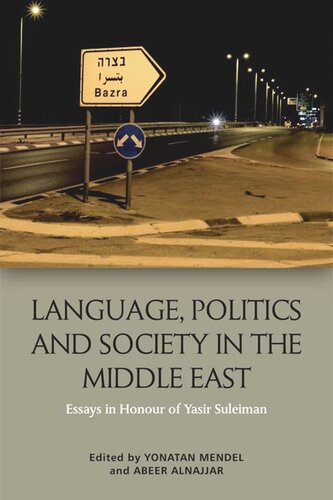

Most ebook files are in PDF format, so you can easily read them using various software such as Foxit Reader or directly on the Google Chrome browser.
Some ebook files are released by publishers in other formats such as .awz, .mobi, .epub, .fb2, etc. You may need to install specific software to read these formats on mobile/PC, such as Calibre.
Please read the tutorial at this link: https://ebookbell.com/faq
We offer FREE conversion to the popular formats you request; however, this may take some time. Therefore, right after payment, please email us, and we will try to provide the service as quickly as possible.
For some exceptional file formats or broken links (if any), please refrain from opening any disputes. Instead, email us first, and we will try to assist within a maximum of 6 hours.
EbookBell Team

4.8
64 reviewsPublished in honour of Professor Yasir Suleiman, this collection acknowledges his contribution to the field of language and society in general, and to that of language analysis of socio-political realities in the Middle East in particular. Presenting a range of case studies relating to the role of language in the Middle East, each shows that the study of language unearths deeper processes relating to political affiliations, social behaviour and transnational as well as religious and sectarian identities. It also explores questions related to the power of language as a socio-political instrument, and addresses current issues that facilitate an understanding of the evolving intersections in the areas of language and politics in the modern Middle East. This includes how language forms and is shaped by its social and political surroundings, the language manifestations of social, religious and political identifications, as well as groupings, divisions and polarisations in the encounter between language, conflict and politics in contemporary Middle Eastern communities. Looking at language as a proxy for social and political struggles, the volume gives prominence to the long-lasting legacy and great contribution of Professor Yasir Suleiman to the field.